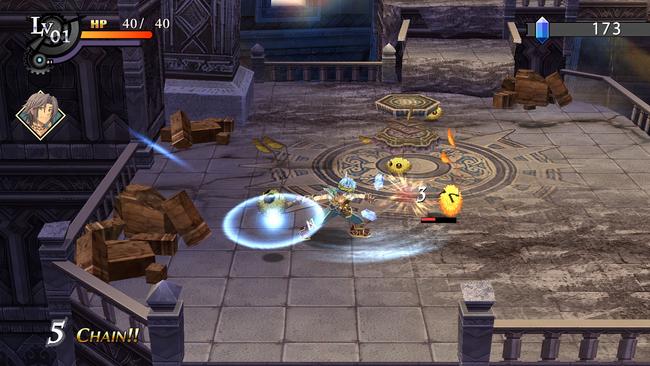
One Year Later, The Steam Deck is the best place to play RPGs
On February 25, 2022, Valve released the Steam Deck to the world; a handheld gaming PC designed to - as described by Valve themselves - play every game available on Steam, within reason, in a portable form factor. While this specific goal hasn’t completely been met within the system’s inaugural year, looking back on the journey that both the hardware and software have made since launch, it’s wild to see just how well-represented RPGs have been throughout this entire journey.
Even as early as the Steam Deck’s launch day, Valve made a point that Elden Ring - our RPG of the Year 2022, and which launched on the same date as the Steam Deck hardware - worked from the word go. Valve even went as far as to patch in specific optimizations on their end that ended up making the game, in some ways, run smoother on SteamOS than on its natively supported Windows. Other major RPGs released later in the year also saw day-1 support, including games like the PC ports of Judgment and Lost Judgment, Persona 5 Royal, and Final Fantasy VII Remake: Intergrade’s Steam release - to name a few.
While the Steam Deck has been an excellent piece of hardware to play games like Vampire Survivors and Hades on, it’s been my own experience that the vast majority of my playtime with the device has been with titles like Monster Hunter Rise: Sunbreak (more or less completely ensuring I’ll never be returning to my Switch version’s save file), The Legend of Nayuta: Boundless Trails, and even a surprisingly large amount of Final Fantasy XI.

Most recently, I’ve found myself enamored to Octopath Traveler II on the system, and as a longtime PC gamer, I can safely say that outside of first-party Nintendo games it has completely replaced my Switch for my regular rotation of systems I’ll actively pick up and play. Being able to play some of my favorite RPGs, both new and old, on the same piece of hardware is immensely appealing - and despite my initial misgivings about how the system looked, it’s been astonishingly ergonomic, lending itself well to playing it in bed. A feat that I long abandoned attempting with my Switch, due to the near inevitability of hand cramps when lounging to one side.
Valve succeeded in making an appealing device that anyone - even if they aren’t a PC gamer, and never want to be one - might find a reason to use. For RPG fans, however, I think the Steam Deck represents something even more than that, owing to its very nature of PC compatibility.

Steam Deck is the only console-like hardware capable of playing every mainline, numbered Final Fantasy. While the Pixel Remasters of I through VI will be available on Switch and PlayStation this year, titles like XI and XIII remain locked on their original platforms and PC; while you can play the latter on Xbox, that’s only owing to Microsoft’s own efforts to keep Xbox 360 games accessible on current-generation Xbox consoles. The only platform truly capable of playing every Final Fantasy is PC; and, therefore, Steam Deck.
This phenomenon isn’t just true to Final Fantasy, either; the same can be said for many series. Nihon Falcom’s own Ys and Trails series both have the entirety of their localized lineups available on PC, while any given console only has a fraction of the titles available. Aquaplus’ Utawarerumono franchise might well be a PC exclusive moving forward as Monochrome Mobius’ PlayStation versions have yet to see a localization. Even the incredibly popular Witcher franchise has the first game exclusive to PC, despite the sales and acclaim the follow-ups have received. Of course, even for RPGs that haven’t received native PC ports, emulation - which the Steam Deck is ultimately very capable of - helps fill in those gaps in its library as well.
At the end of the day, there truly is no other modern platform that offers such a range of playable RPGs than the Steam Deck. You could say that for any number of genres, I’m sure, but it’s hard to think of any other that fits the system better than the one we all adore. People will look back on the Steam Deck’s first year for a variety of reasons, and come away with wildly different thoughts, but for me, the defining characteristic of it all was how quickly it became a staple of my RPG library.